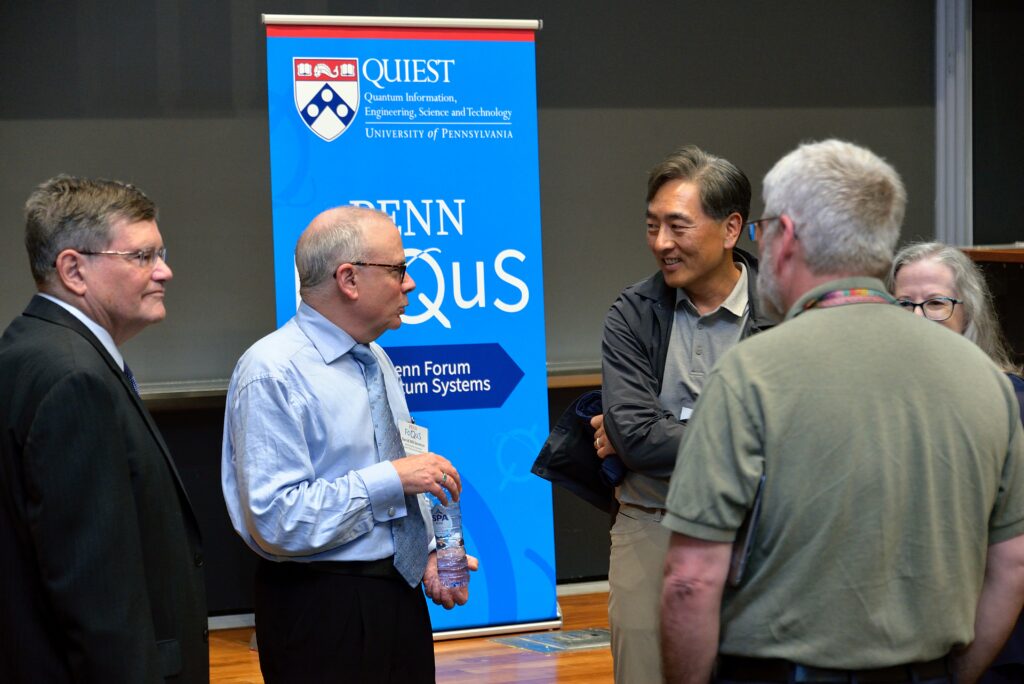
Sometimes, nature’s smallest objects have the biggest impact. Take the quantum realm, which involves the building blocks of matter itself.
Quantum science aims to understand the behavior of matter and energy at the scale of atoms and subatomic particles. Because particles frequently defy human intuition at this scale, the field likely offers great, untapped potential to solve some of our most complex issues.
“Bringing ‘quantum superstars’ from academia and industry to a space where scientists of all levels could interact, exchange ideas and gain inspiration is just one way we can foster collaboration in advancing the field and exploring new possibilities,” says Lee Bassett, Associate Professor in Electrical and Systems Engineering (ESE) and Director of the Center for Quantum Information, Engineering, Science and Technology (QUIEST).
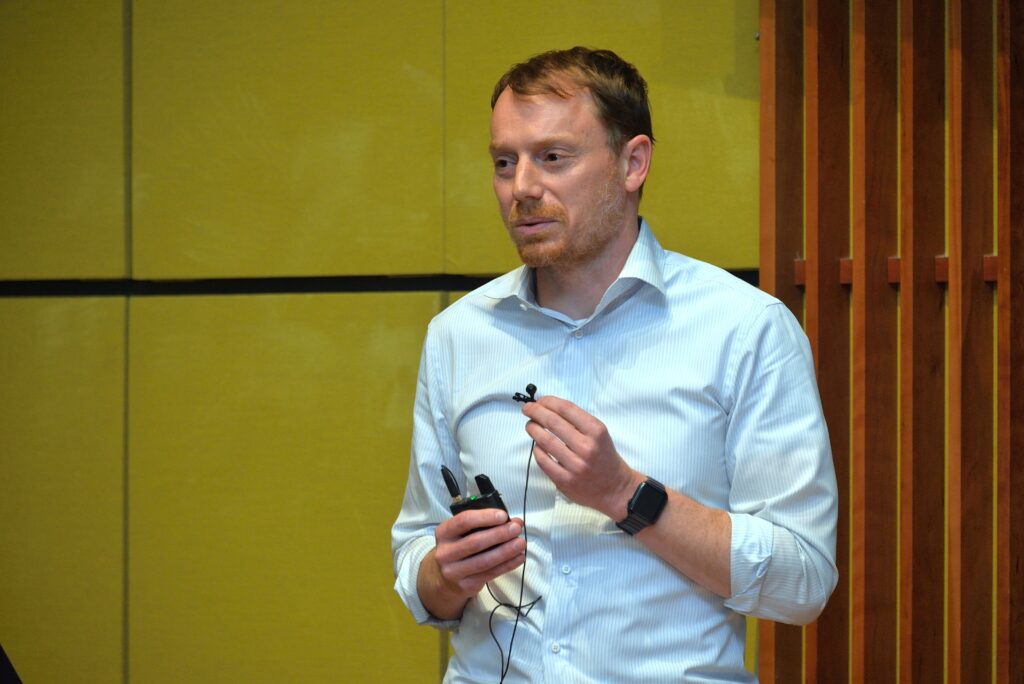
Established in June 2023, QUIEST hosted its first symposium, The Penn Forum on Quantum Systems (FoQuS), last month, which reached over 150 attendees and included keynote speakers from across the country and globe.
“The event was a wonderful success,” says Bassett. “External speakers appreciated being part of these discussions and seeing the exciting things happening at Penn. Penn faculty and students were thrilled to learn more about the state-of-the-art quantum research happening around the world in industry and in national labs.”
The forum’s goals were to connect researchers, raise awareness about regional, national and international efforts in quantum engineering and help guide research and education priorities for the QUIEST Center.
Touching on all four research domains of the Center (Materials for QUIEST, Quantum Devices, Quantum Systems and QUIEST Impact), the forum left attendees, including faculty as well as graduate, undergraduate and high school students, with new inspiration for future research.
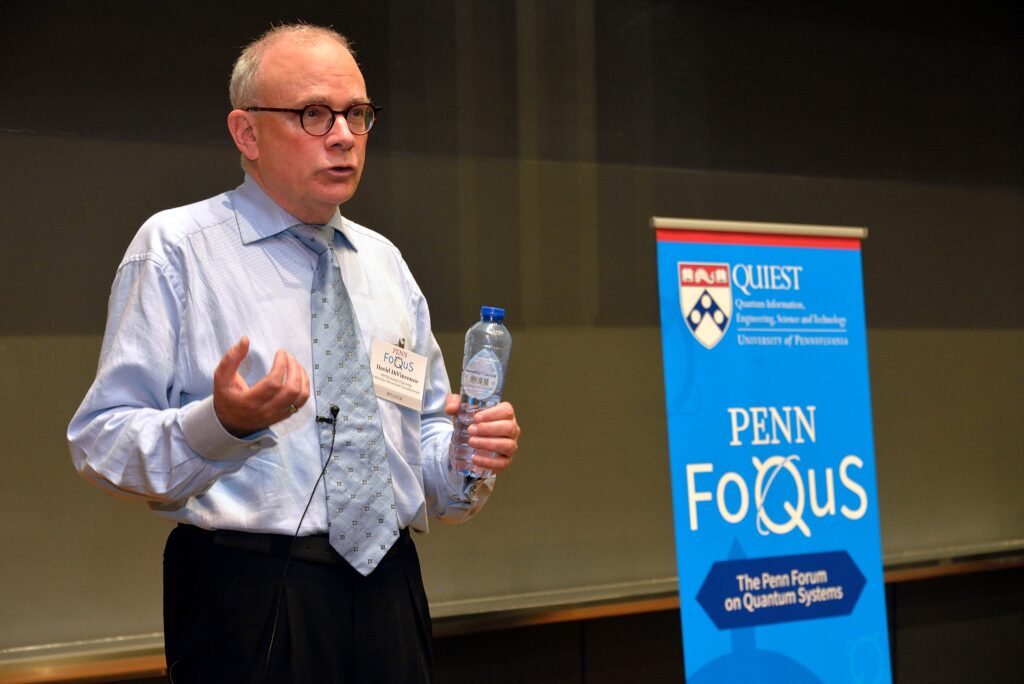
“Our keynote speaker and Penn Engineering alum, David DiVincenzo (Electrical and Systems Engineering PhD ‘83), shared his journey that started at Penn and led to a pioneering career in quantum science, leaving students buzzing with excitement and curiosity. At the poster session, the students were able to share their own research in the field with David as well as other international experts,” says Bassett. “Numerous attendees reflected on the poster session as a highlight of the event, since there was so much fascinating work to explore with the student presenters.”
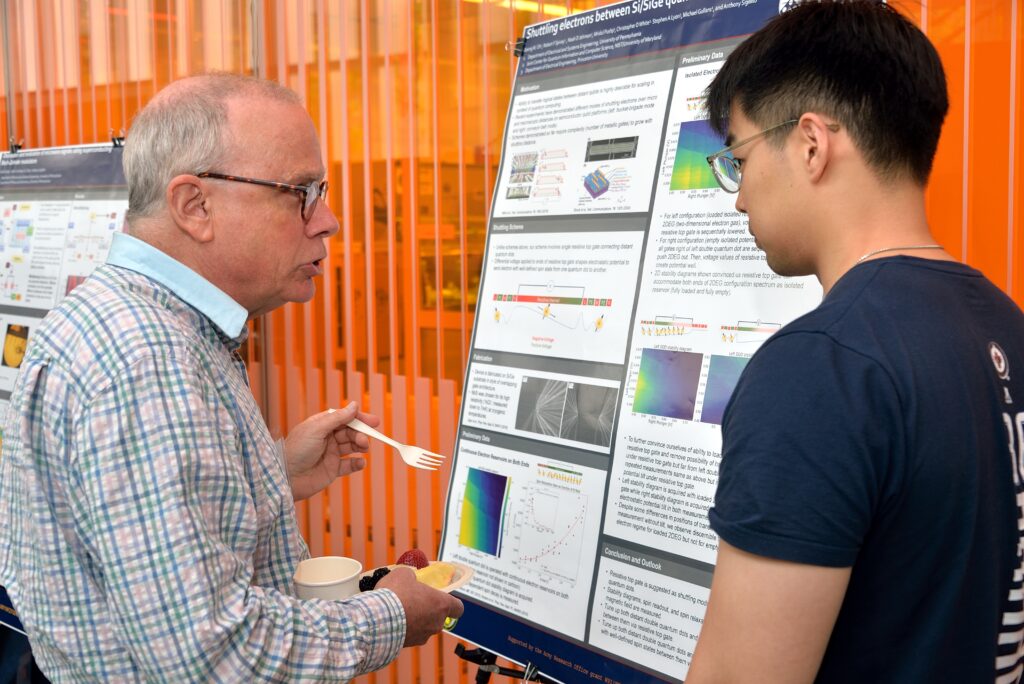
Scientists at FoQuS shared insight into research spanning topics from advanced quantum computer chip development to improvements in health care. For example, Romana Schirhagl, Professor at the University of Groningen in the Netherlands, described research that leverages quantum sensing and nanodiamonds to visualize the tiniest biological interactions in single cells without disturbing them. Schirhagl uses this technique to visualize oxidative stress in sperm and egg cells to help identify high-quality gametes for improved in vitro fertilization (IVF).
Liang Wu, Assistant Professor in the Department of Physics and Astronomy in Penn’s School of Arts & Sciences, presented his work involving two spectroscopy techniques, terahertz and ultrafast optical studies, to understand the behavior of quantum materials.
Anthony Sigillito, Assistant Professor in ESE, provided insight into building a quantum computer using silicon/silicon-germanium (Si/SiGe) quantum dots as fundamental building blocks, while Gushu Li, Assistant Professor in Computer and Information Science and ESE, spoke on new ways of representing and understanding quantum systems.
The interdisciplinary event also included experts from Princeton University, the University of Maryland and University College London, among other institutions, as well as Argonne National Labs, DARPA and the Department of Energy. Combining oral presentations, poster sessions and the opportunity to join virtually, the forum facilitated the dissemination of research for quantum scientists in diverse locales and career stages.
“The engaging poster session, our stellar speakers and the scope of this symposium, which encompassed academic research and industrial and government perspectives on national initiatives in quantum science from the DOE and DARPA, made this a truly unique and inclusive event,” says Dawn Bonnell, Henry Robinson Towne Professor in Materials Science and Engineering and Senior Vice Provost for Research.
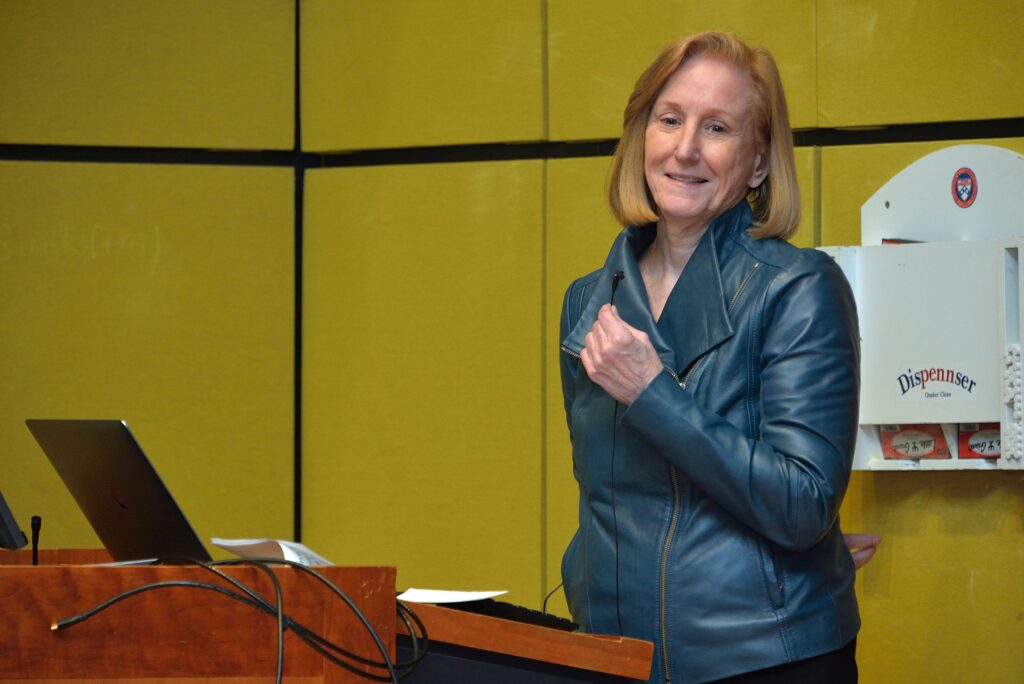
FoQuS will continue to push the field of quantum science forward and provide an opportunity for experts around the world to come together and collaborate on innovative research.
“I was honored to have been entrusted with the task of leading the organization of this inaugural event,” says Marian Bechtel, Program Coordinator for both QUIEST and the Center for Precision Engineering for Health in Penn Engineering. “QUIEST is still a young and growing Center, and with all of the great enthusiasm that has come from this first FoQuS, I am excited to plan the next event, again as a collaborative effort with faculty and staff across Penn, to better serve our community’s needs and interests.”
by Melissa Pappas
Published June 21, 2024 on Penn Engineering Today
